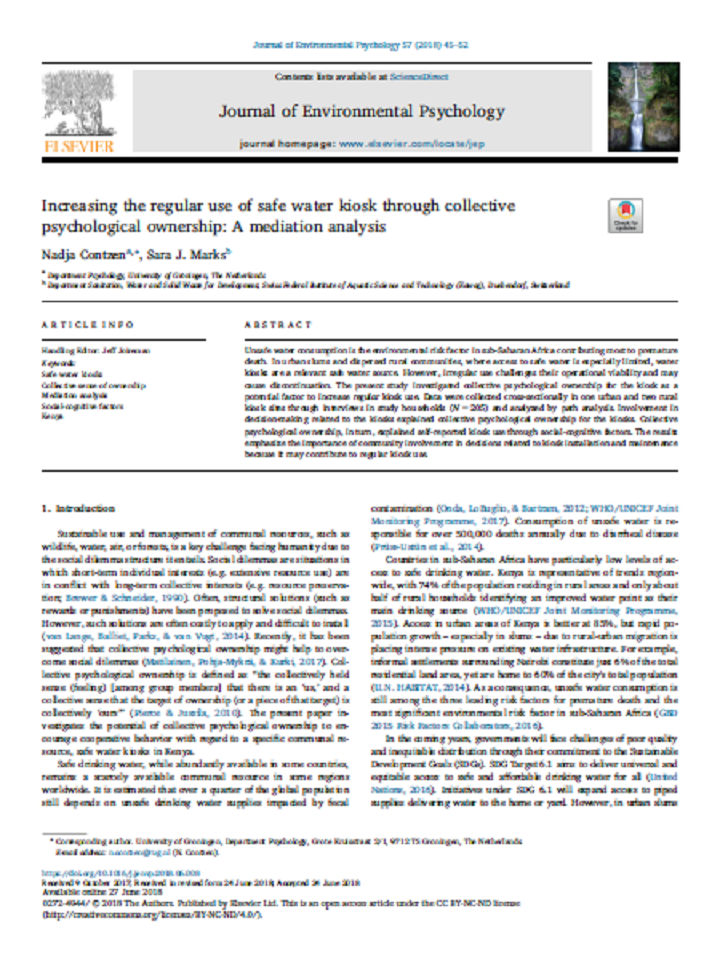Increasing the Regular Use of Safe Water Kiosk Through Collective Psychological Ownership: A Mediation Analysis Contzen, N., Marks, S. J. (2018)
Unsafe water consumption is the environmental risk factor in sub-Saharan Africa contributing most to premature death. In urban slums and dispersed rural communities, where access to safe water is especially limited, water kiosks are a relevant safe water source. However, irregular use challenges their operational viability and may cause discontinuation. The present study investigated collective psychological ownership for the kiosk as a potential factor to increase regular kiosk use. Data were collected cross-sectionally in one urban and two rural kiosk sites through interviews in study households (N = 205) and analyzed by path analysis. Involvement in decision-making related to the kiosks explained collective psychological ownership for the kiosks. Collective psychological ownership, in turn, explained self-reported kiosk use through social-cognitive factors. The results emphasize the importance of community involvement in decisions related to kiosk installation and maintenance because it may contribute to regular kiosk use.
Bibliographic information
Contzen, N., Marks, S. J. (2018). Increasing the Regular Use of Safe Water Kiosk Through Collective Psychological Ownership: A Mediation Analysis Journal of Environmental Psychology
Filter / Tags
English
Downloads
Increasing the Regular Use of Safe Water Kiosk Through Collective Psychological Ownership: A Mediation Analysis.
Type: application/pdf
Size: 0.83 MB

